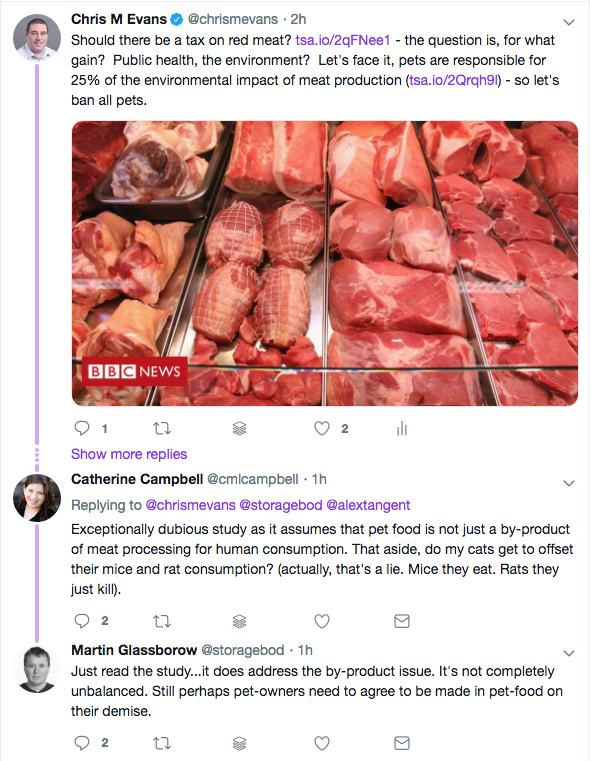 Although I posted this tweet somewhat tongue-in-cheek, the content of both the BBC News article and the research do raise some important issues. First is whether reduced red meat consumption would in fact save thousands of lives per year. I have no doubt that reduced red meat consumption would definitely benefit us all. The science behind processed meat consumption seems a little contradictory, although the general consensus is that sausages and bacon are “probably” bad for us.
Although I posted this tweet somewhat tongue-in-cheek, the content of both the BBC News article and the research do raise some important issues. First is whether reduced red meat consumption would in fact save thousands of lives per year. I have no doubt that reduced red meat consumption would definitely benefit us all. The science behind processed meat consumption seems a little contradictory, although the general consensus is that sausages and bacon are “probably” bad for us.
I use the term in quotes, because when you read analysis like this (link) from the NHS, the caveats and the assumptions are pretty wide. Ultimately, of course, reducing red meat consumption is one factor in improving heath. It would be useful if studies like this put the results in context. For example, compared to other “bad habits”, like smoking, drinking or doing no exercise, how significant is eating red meat?
We could use the “microlife” concept to establish a comparison. This shows we lose a microlife (or 30 minutes of our worldly existence) for each 85g portion of red meat we consume. Conversely, we gain 3-4 microlifes from eating our daily fruit and vegetables. Smoking a pack of cigarettes loses around 5 hours of life; 2-3 cups of coffee gains a microlife. Two hours of TV loses another microlife.
Can these be balanced up against each other? Does one cancel the other out? Probably not. But the measurements do give some order of magnitude understanding of the impacts of different types of risk factors.
Looking at my own diet, I would estimate that I have red meat perhaps 2-3 times a week. The remainder of the time it’s white meat (mainly chicken and pork), fish (white and oily) and seafood. Processed meat appears even less often with sausages and bacon being consumed maybe once every 2-3 weeks. Is this a conscious decision? Probably subtly unconscious, but based on reported news nonetheless. In general though, simply cutting out red meat isn’t going to save the planet or humanity, but instead a range of factors and behavioural improvements that we can all benefit from.